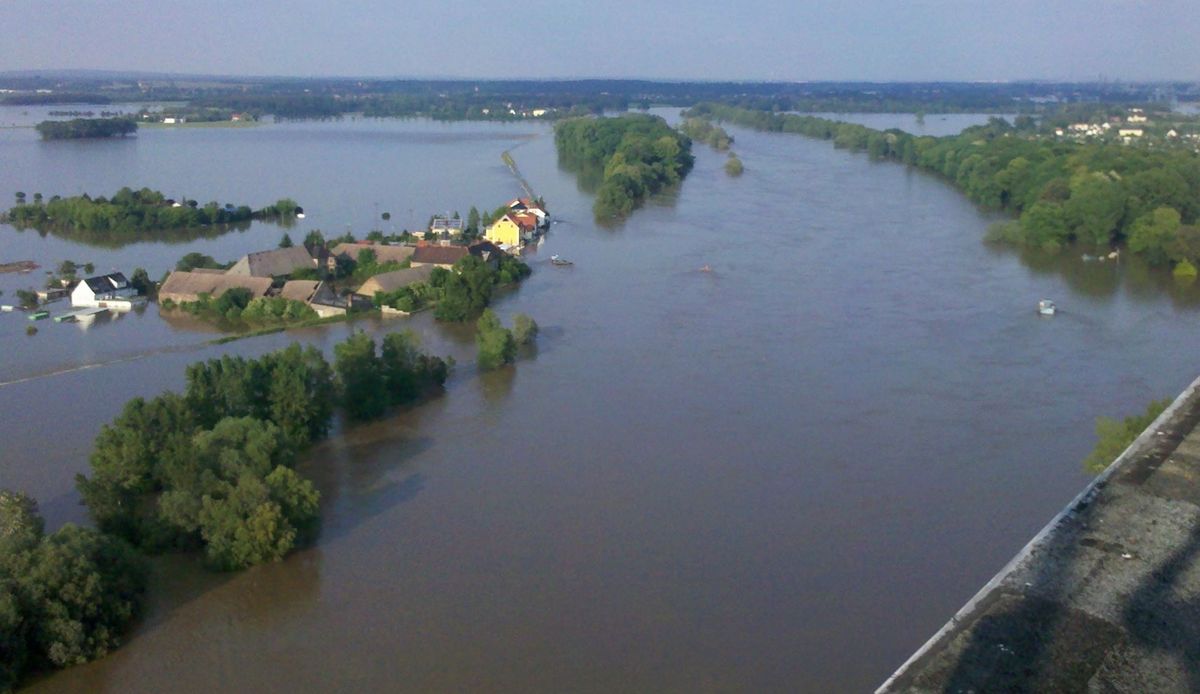Drought, heavy rain, storms and hail – to what extent are extreme weather events linked to climate change? This is the question being investigated bythe working group. As such, the group is active in the only recently established research field of climate attribution, which involves the assessment of how a range of different causal factors contribute to a climate event relative to each other.
Research Profile
The bulk oft the research is closely linked to climate change attribution. The research group uses modern empirical-quantitative statistical and machine learning methods to address these research questions and integrate different climate and Earth science data streams.
Current Research Projects
Economics of Connected Natural Commons (ECO-N)
Funding: German Research Foundation
Air pollution, species loss, overfishing – the list of challenges to sustainable development is long. In most cases, it is people who have overexploited natural resources for economic gain: they have overfished the oceans, crowded out insects through unbalanced agricultural practices and polluted the air with industrial emissions. Some of these undesirable developments have already been partially reversed, but in some cases new problems have arisen. The new Research Training Group, Economics of Connected Natural Commons (ECO-N), will explore these complex interactions between economic demands, human behaviour and natural resources.
Process-based ATTribution of Extreme Temperatures to Anthropogenic drivers
Funding: Federal Ministry of Education and Research
Period: 01.10.2023 – 30.09.2026
Team: Florian Kraulich, JP Dr. Sebastian Sippel
Climate change continues despite societal targets towards emission reductions. In order to design adaption plans, we need to understand how weather extremes will develop in the climate of the future.
The aim of the PATTETA is to contribute to a better understanding of the causes of climate change-induced changes of heat weaves (greenhouse gases, aerosols, circulation changes, etc.) both in the past and for the future, and to communicate them through attribution studies.
The aim of the PATTETA is to contribute to a better understanding of the causes of climate change-induced changes of heat weaves (greenhouse gases, aerosols, circulation changes, etc.) both in the past and for the future, and to communicate them through attribution studies
PATTETA is divided into three work packages with specific objectives.
WP 1: Understanding the relative contribution of greenhouse gases and aerosols to the change in heat waves from the past to the present – under different weather conditions in
WP2: Identification of circulation-related contributions to heat waves, thermodynamic components and their uncertainties in future protections.
WP3: Contribution to the knowledge transfer to the POSTAG communication projects
The climate factors from WP1 and WP2 are evaluated separately to evaluate the evolution of weather and weather extremes under different climatic conditions.
PATTETA contributes to the attribution of cause and effect of changes in heat waves and climate change. By evaluating the various factors and their influences, climate communication regarding expected changes for society is improved.
Artificial Intelligence and machine learning for enhanced representation of Processes and EXtremes in Earth system models
Funding: European Union
Period: 01.04.2024 – 31.03.2028
Team: Dr. Peter Pfleiderer, JP Dr. Sebastian Sippel
Global warming continues at an alarming rate, presenting unprecedented challenges to society that require urgent, science-led mitigation and adaptation. Earth system models (ESMs) are essential tools for projecting climate change, providing important information to decision makers.
However, confidence in predicted climate change is undermined by a number of uncertainties;
(i) ESMs disagree on how much the Earth will warm for a given increase in atmospheric CO2 (Earth’s equilibrium climate sensitivity);
(ii) how much emitted CO2 will stay in the atmosphere to warm the planet (half the CO2 emitted by humans has been absorbed by the land and ocean) and
(iii) how much excess heat in the Earth system will enter the ocean interior, delaying surface warming (~90% of the heat in the Earth system goes into the ocean). Central to these uncertainties are poorly understood, and poorly modelled, Earth system feedbacks, in particular cloud feedbacks, carbon cycle feedbacks and ocean heat uptake. Poor representation of these phenomena degrades the accuracy of ESM projections, with implications for anticipating future climate extremes and societal impacts. We aim to improve the representation of these feedbacks in ESMs, reducing uncertainty in global warming projections. We propose a multidisciplinary approach, focused on “learning” how to accurately describe processes underpinning these feedbacks, through a fusion of observations with advanced machine learning and artificial intelligence. Such data and approaches, constrained by the laws of physics, will deliver a step change in the accuracy of Earth system models.
AI4PEX Artificial Intelligence and machine learning for enhanced representation of Processes and EXtremes in Earth system models: will place Europe at the forefront of a revolution in Earth system modelling, leading to increased accuracy of climate change projections and superior support for implementation of the Paris Climate Agreement and the European Green Deal.

